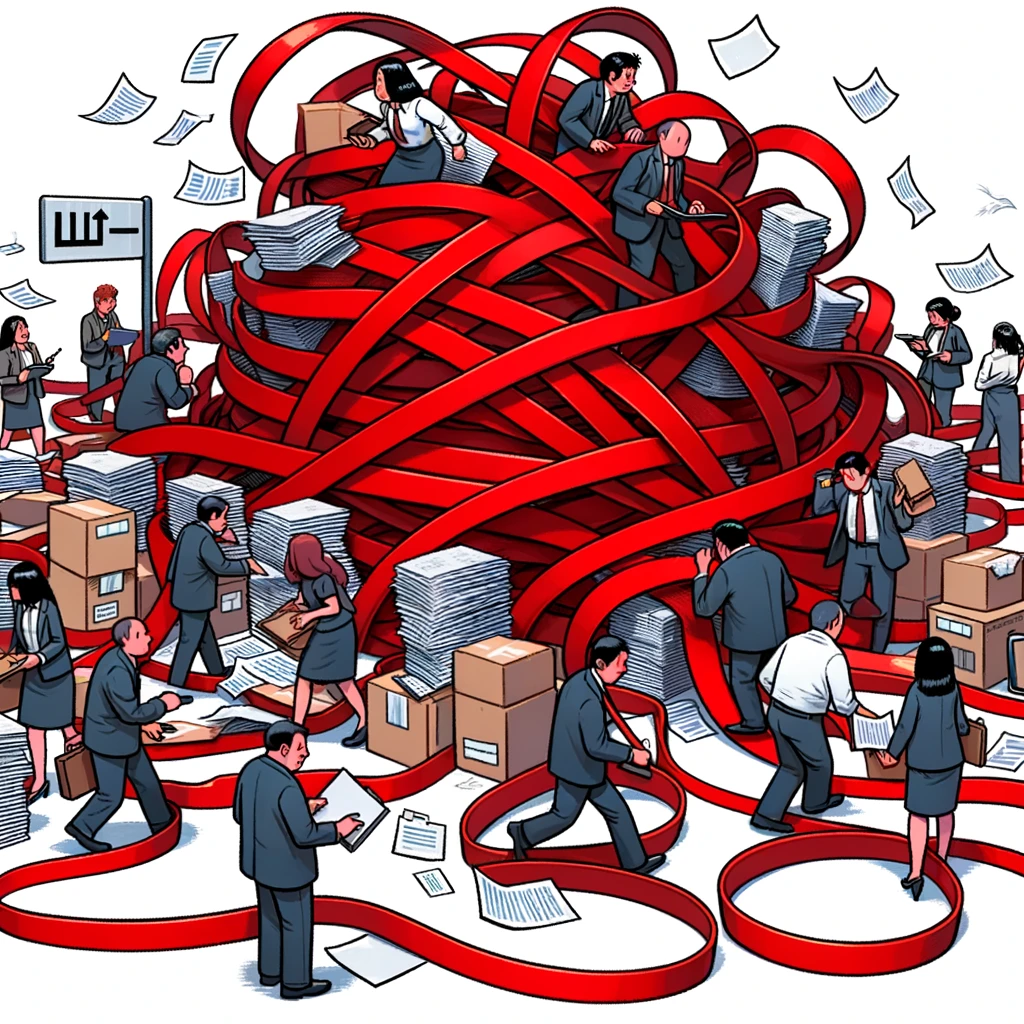Estimated reading time: 5 mins
When pondering over why certain tasks take an inordinate amount of time to complete, a myriad of reasons comes to mind. The intricacies of task management and execution are often far more complex than they appear at first glance. Here’s an expanded exploration of why tasks can often take longer than anticipated, spanning 1500 words to provide a comprehensive understanding.
1. The Paradox of Too Many Hands

One of the primary reasons tasks get bogged down is the involvement of too many people. More individuals mean more opinions, tastes, preferences – a melting pot of subjectivity that can derail the swiftest of tasks. Coordinating schedules becomes a Herculean task in itself, with the additional challenge of managing diverse egos and sometimes, justifying the existence of certain roles. This often leads to a convoluted decision-making process, where clarity and efficiency are the first casualties.
2. The Intimidation of Size
Another significant factor is the sheer size and scope of a task. Large, unwieldy tasks can be daunting, leading to procrastination or a complete avoidance. The lack of breaking down these mammoth tasks into manageable, bite-sized chunks exacerbates this issue. This approach can transform an otherwise doable project into a formidable challenge that seems insurmountable.
3. The Quagmire of Process


Processes and bureaucracy, while essential for organizational structure, can become detrimental when overemphasized. Excessive processes can hinder the initiation, continuation, and timely completion of tasks. They can add layers of complexity and expense, making the execution of tasks burdensome and time-consuming. This often results in a paradox where the process, intended to streamline work, becomes the very obstacle it sought to overcome.
4. The Crisis of Invisibility of Benefits
When the benefit of completing a task is not apparent, motivation plummets. Workers, unable to see the value or end result of their efforts, are more likely to abandon tasks midway or deprioritize them. The lack of a clear, tangible outcome makes it challenging to invest time and effort in a task, leading to delays and incompletion.
5. The Dilemma of Misaligned Tasks


Some tasks are fundamentally flawed, either being unnecessary, inefficient, unethical, or irrational. Workers often recognize this misalignment and respond by stalling or deprioritizing these tasks. The reluctance to engage in tasks that seem counterproductive is understandable, but it can lead to a backlog and inefficiency.
6. The Complication of Multitasking
In today’s fast-paced work environment, multitasking is often unavoidable. However, juggling multiple tasks simultaneously creates complexity and uncertainty. This divided attention can reduce the quality of work and lead to delays, as workers struggle to prioritize and allocate their time effectively. Unplanned work and emergencies only add to this chaos, further derailing the timeline of ongoing tasks.
7. The Hurdle of Difficulty


Difficult or seemingly impossible tasks are frequently put off in favor of easier, more straightforward tasks. These challenging tasks require a level of energy and commitment that people are often reluctant to give. As a result, they are relegated to the infamous ‘Too Difficult Box’, which is only opened under extreme pressure or necessity.
8. The Resistance to Unpleasant Tasks
Let’s face it, some tasks are simply unappealing. They might be mundane, uninteresting, or even perceived as beneath one’s skill level. Others might carry a degree of embarrassment or make us feel incompetent. This natural aversion to unpleasant tasks often leads to procrastination or outright refusal to engage with them.
9. The Ambiguity of Poorly Defined Tasks


When tasks lack clear definition and direction, they become a breeding ground for confusion and delays. Insufficient information on how to start, process, or conclude a task, coupled with ambiguity about the desired outcome, leads to uncertainty and inefficiency. This is akin to attempting an exam without clear instructions or expectations – the likelihood of success is significantly diminished.
10. The Challenge of Inadequate Resources
Often, the individuals tasked with executing a project are ill-equipped to do so. This could be due to a lack of time, knowledge, tools, financial resources, or simply due to incompetence. The inadequacy of resources is a significant barrier to effective task completion and can severely impact the quality and timeliness of the outcome.
11. The Exponential Effect of Combined Factors
When any combination of these factors comes into play, the probability of timely task completion diminishes exponentially. A task that is simultaneously poorly defined, challenging, and managed by a team lacking the necessary tools or time is almost guaranteed to face delays. It’s a formula for inefficiency and frustration.


12. The Reality Check
Consider the scenario of a complicated, poorly defined task being undertaken by a large team of busy individuals, lacking the necessary tools and resources. The likelihood of such a task being completed on schedule is minimal. This situation might sound familiar, as many of us have encountered similar challenges in our professional lives.
The Path Forward
- Streamlining Team Involvement: Optimize team size to include only essential personnel. This reduces the complexity of coordination and decision-making.
- Breaking Down Tasks: Divide larger tasks into smaller, manageable segments. This makes them less daunting and easier to tackle.
- Rationalizing Processes: Evaluate and streamline processes to ensure they aid rather than hinder task completion. Remove unnecessary bureaucratic steps.
- Clarifying Benefits and Outcomes: Make the objectives and benefits of tasks clear to all involved parties. This enhances motivation and commitment.
- Aligning Tasks with Goals: Regularly assess tasks for their relevance and efficiency. Eliminate tasks that do not align with broader organizational goals or ethical standards.
- Managing Multitasking: Prioritize tasks effectively and allocate dedicated time slots for each, reducing the inefficiency of constant task-switching.
- Addressing Task Difficulty: Provide adequate support and resources for difficult tasks. Encourage a culture where challenges are embraced rather than avoided.
- Making Unpleasant Tasks Palatable: Rotate or share less desirable tasks among team members. Offer incentives or recognition for completing these tasks.
- Defining Tasks Clearly: Ensure that each task comes with clear instructions, expected outcomes, and timelines. This reduces ambiguity and confusion.
- Equipping Teams Appropriately: Ensure that teams have the necessary resources, training, and support to complete their tasks effectively.
By understanding and addressing these factors, organizations and individuals can significantly improve efficiency and productivity. It’s about creating an environment where tasks are not just assigned, but managed in a way that aligns with human behavior and organizational goals. This leads to a more streamlined, effective, and satisfying work process, benefiting both the individual and the organization.
